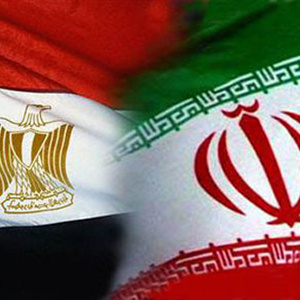Airline Diplomacy and the Future of Tehran-Cairo Relations

Problems with the relationship began in 1952, when Egypt transformed into a republic after a coup launched by Gamal Abel Nasser and the Free Officers against the Egyptian monarchy. With the new republic establishing close ties with the Communist Bloc, drifting away from the West and turning increasingly hostile toward Israel—while Iran was on a diametrically opposed path—it was apparent that the two countries were on a collision course. Subsequent to the 1953 US-led coup against Dr. Mosaddeq’s popular government, the West, and Israel accordingly, secured a significant position in Iran’s foreign policy. With the Shah becoming a strategic ally of Western countries, a cold war between Iran and Egypt was triggered and each decided to take practical steps to undermine the other. For his part, Gamal Abdel Nasser lent support to Iranian political dissidents, providing them with military training. The Pan-Arab leader also supported separatist Arabs of the Khuzestan province in southwestern Iran. However, perhaps his most enduring legacy is manipulating the historically approved geographical name of the Persian Gulf, turning it into the Arabian Gulf in line with the political school of Pan-Arabism.
Interestingly, despite strained ties between the Shah and Nasser, Egypt’s anti-imperialist, anti-Zionist agenda attracted many Iranian intellectuals, though Nasser’s crackdown on Islamist intellectuals (which culminated in the execution of famed Muslim thinker Sayyid Qutb) disillusioned many of his Iranian advocates.
The ascension of Anwar Sadat to power, concurrent with Mohammad Reza Pahlavi’s rule in Iran as the last monarch - ushered in a fleeting era of friendly ties between Tehran and Cairo. The honeymoon was spoiled, however, with the 1979 Islamic Revolution in Iran that was based on an internationalist revolutionary Islamist agenda that advocated “exporting the Revolution”. The Camp David peace accords between Sadat and Israel’s Menachem Begin was the final nail in the coffin of Iran-Egypt ties; a watershed moment that plunged bilateral ties into enmity for more than thirty years. Egypt’s gradual move toward the US camp and its support for Iraq during the 1980’s war with Iran only aggravated the situation. The same was true for Iran’s revolutionary propagandistic moves –such as naming a street in Tehran in homage to Khaled Islambouli, Anwar Sadat’s assassin.
Nonetheless, cultural interaction has witnessed a different climate. During all the years Iranian and Egyptian leaders were busy accusing each other, Iranian and Egyptian intelligentsia moved closer to each other. The momentous product of these efforts is the establishment of the Assembly for Rapprochement between Islamic Schools of Thought, a joint achievement of al-Azhar University Grand Sheikh Mahmud Shaltut and Iranian cleric Mohammad Taghi Ghomi, which aimed to obliterate the Shi’a-Sunni rift entrenched in the minds of Muslims.
Egyptian intelligentsia is quite familiar Iran’s cultural developments. Currently, there are 14 independent faculties of Persian Language, with 200 professors and 4000 students in Egypt. Add to this 900 academic theses and dissertations on Iran-related topics, and 40 scholars cooperating with al-Ahram Foundation’s Department of Iranian Studies.
The influence of Egyptian intellectuals on Iranian revolutionary figures is undeniable. Dr. Ali Shari’ati, inspiration and ideologue of Iranian left-wing Muslim revolutionaries, wrote his manifestos Where Shall We Start From? and What Should Be Done? under the influence of Egyptian intellectual Khalid Muhammad Khalid’s ideas, particularly those introduced in his book From Here We Start. The works of Sayyid Qutb were enormously popular and frequently republished in pre-Revolution Iran.
However, on the Iranian side, Egypt-related studies are rare, remaining limited to translation of a few books. This could be one reason to blame the diplomatic apparatus, which lacks adequate knowledge about Egypt: how many academic theses on Egyptian affairs have been authored to date? While both Tehran and Cairo hold interest sections in each other’s country, with the relatively same number of personnel, Egyptians outshine their Iranian counterparts when it comes to familiarity with domestic developments of the other side.
Aside from unfamiliarity, the harsh rhetoric employed by the radical press in both countries is a significant barrier. The Iran-bashing secular Roz al-Yousef daily in Egypt has hard-line comrades in Iran, Kayhan and Jomhouri-ye Eslami. The offensive language of these papers—which may, of course, again originate in their lack of knowledge about the other side—is heavily detrimental to relations between the two nations. Complementary to their insults are movies such as The Execution of Pharaoh (on the assassination of Anwar Sadat) that obviously could never contribute to an atmosphere of rapprochement between Tehran and Cairo.
In one of his typically unconventional remarks, in December 2007, President of Iran Mahmoud Ahmadinejad claimed that he was ready to establish Iran’s embassy in Cairo by the end of that day. An unthoughtful remark if one bears in mind that Iran already has a diplomatic office in Egypt. It is the level of relations that needs upgrading. Moreover, the president’s gesture will fail to bear any fruits unless the barriers to resumption of ties are removed. For instance, Egypt is furious with Iran’s support for Hamas in the Gaza Strip, which Egypt regards as its backyard.
In order to improve bilateral ties, the first step is not to make generous gestures, but to avoid controversial comments. Ayatollah Khamenei’s recent fatwa (religious decree) banning insults against the Prophet Mohammad’s wife, Aisha, was a constructive measure that can effectively obliterate one of the barriers between Iran and the Sunni World. Resuming direct flights between Tehran and Cairo, its basic agreement made during recent days, is another measure. (Visas, of course, remain a problem, as both countries act quite restrictively when it comes to issuing visas.) A chain of constructive measures can, nonetheless, bring brighter days to Iran-Egypt relations.

